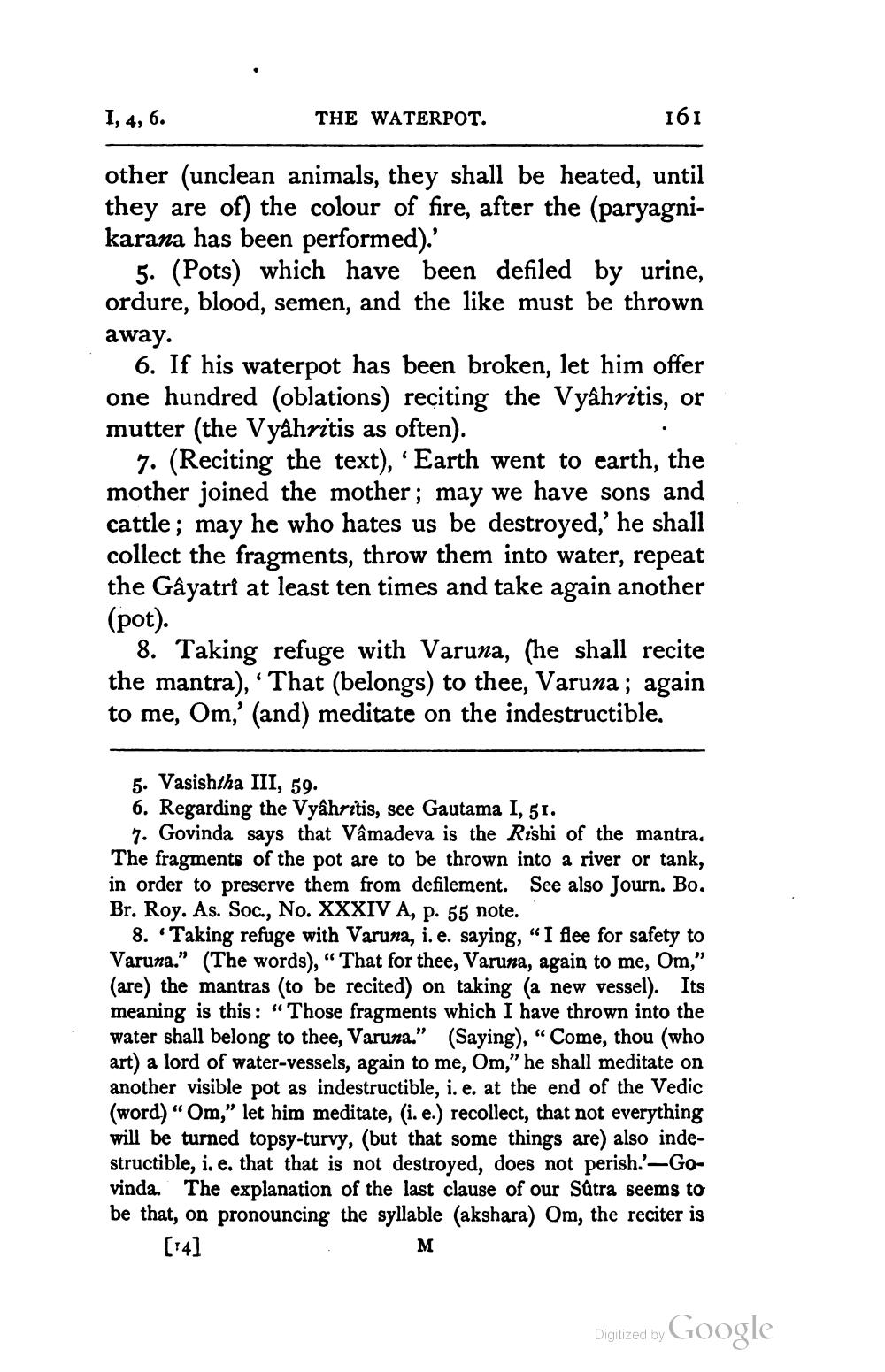________________
I, 4, 6.
THE WATERPOT.
161
other (unclean animals, they shall be heated, until they are of) the colour of fire, after the (paryagnikarana has been performed).
5. (Pots) which have been defiled by urine, ordure, blood, semen, and the like must be thrown away.
6. If his waterpot has been broken, let him offer one hundred (oblations) reciting the Vyâhritis, or mutter (the Vyâhritis as often).
7. (Reciting the text), 'Earth went to earth, the mother joined the mother ; may we have sons and cattle; may he who hates us be destroyed,' he shall collect the fragments, throw them into water, repeat the Gâyatri at least ten times and take again another (pot).
8. Taking refuge with Varuna, (he shall recite the mantra), That (belongs to thee, Varuna; again to me, Om,' (and) meditate on the indestructible,
5. Vasishtha III, 59. 6. Regarding the Vyâhritis, see Gautama I, 51.
7. Govinda says that Vâmadeva is the Rishi of the mantra. The fragments of the pot are to be thrown into a river or tank, in order to preserve them from defilement. See also Journ. Bo. Br. Roy. As. Soc., No. XXXIV A, p. 55 note.
8. Taking refuge with Varuna, i.e. saying, “I flee for safety to Varuna." (The words), “That for thee, Varuna, again to me, Om," (are) the mantras (to be recited) on taking a new vessel). Its meaning is this: “Those fragments which I have thrown into the water shall belong to thee, Varuna." (Saying), “Come, thou (who art) a lord of water-vessels, again to me, Om," he shall meditate on another visible pot as indestructible, i.e. at the end of the Vedic (word) “Om," let him meditate, (i.e.) recollect, that not everything will be turned topsy-turvy, (but that some things are also indestructible, i.e. that that is not destroyed, does not perish.'-Govinda. The explanation of the last clause of our Satra seems to be that, on pronouncing the syllable (akshara) Om, the reciter is
[14]
M
Digitized by Google




